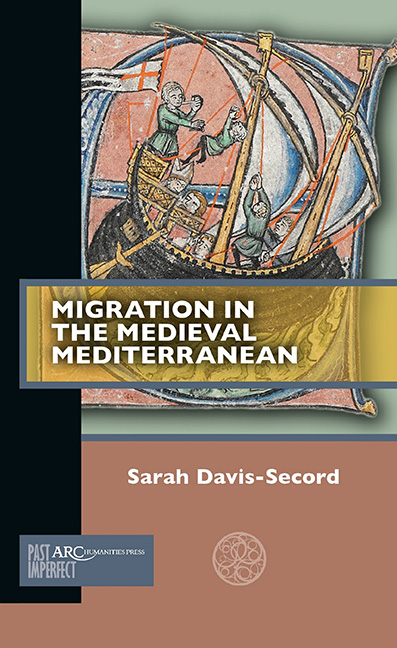Book contents
- Frontmatter
- Contents
- Introduction
- Chapter 1 Refugees from the Islamic Conquests
- Chapter 2 Hadrian and Theodore
- Chapter 3 St. Elias the Younger
- Chapter 4 Constantine the African
- Chapter 5 Jewish Refugees from the Norman Invasion
- Chapter 6 Merchants
- Chapter 7 Imam al-Mazari and Other Muslim Scholars
- Chapter 8 Unnamed Sicilian Girl
- Chapter 9 George of Antioch and Other Immigrants to Sicily
- Chapter 10 Moses Maimonides
- Chapter 11 Religious Converts
- Conclusion
- Further Reading
Chapter 6 - Merchants
Published online by Cambridge University Press: 13 January 2022
- Frontmatter
- Contents
- Introduction
- Chapter 1 Refugees from the Islamic Conquests
- Chapter 2 Hadrian and Theodore
- Chapter 3 St. Elias the Younger
- Chapter 4 Constantine the African
- Chapter 5 Jewish Refugees from the Norman Invasion
- Chapter 6 Merchants
- Chapter 7 Imam al-Mazari and Other Muslim Scholars
- Chapter 8 Unnamed Sicilian Girl
- Chapter 9 George of Antioch and Other Immigrants to Sicily
- Chapter 10 Moses Maimonides
- Chapter 11 Religious Converts
- Conclusion
- Further Reading
Summary
The Geniza community included highly mobile merchants who, as we have seen, could use their personal and professional contacts to seek refuge from invading forces. But these letters show that migration among this community had in fact begun prior to the Norman conquest of Sicily and the collapse of Zirid power in Ifriqiya. Indeed, not all migrations were spurred by events like regime change, conquest, or religious persecution—sometimes they were based on pragmatic business decisions like where the best deals could be made or where a new trade could be established after a setback. And migrants followed paths that were also traced by merchants, pilgrims, diplomats, and scholars. Travel across the sea was dependent upon locating a ship going to and from particular ports, along well-sailed sealanes in sight of the shorelines. So it comes as no surprise that many of the ships and shipping lanes on which migrants sailed were the same ones that transported merchandise, pilgrims, political officials, envoys, and scholars. Individuals who were already familiar with ships, ports, and foreign cities might find the process of migration a little easier than those who were not.
The business trips mentioned in the Geniza letters—spanning the Mediterranean Sea and Indian Ocean regions—show clearly that the Jews who belonged to this widespread community moved from place to place with relative ease, even though relocation to a new place often entailed some level of hardship. But it was not only Jewish merchants who could use their business networks or knowledge of foreign lands as resources for migration—merchants from all cultures were known to have moved regularly across the medieval world, sometimes temporarily and sometimes permanently. Colonies of merchants established in foreign entrepôts were key players in long-distance trade, but they also facilitated cultural exchange—such as the spread of Islam along the shores of the Indian Ocean and the China Seas. We know, for example, that colonies of foreign traders—many from the Arabic- and Persian-speaking worlds—were established in Chinese port cities like Guangzhou (Canton) from as early as the eighth century.
Many Geniza letters show migration as a commonplace among these mercantile communities—for instance, when detailing the conflicts between family members or business partners who lived far apart. The letters testify to the fact that when members of extended families lived at a distance from each other, family relations could at times be difficult.
- Type
- Chapter
- Information
- Migration in the Medieval Mediterranean , pp. 53 - 60Publisher: Amsterdam University PressPrint publication year: 2021



